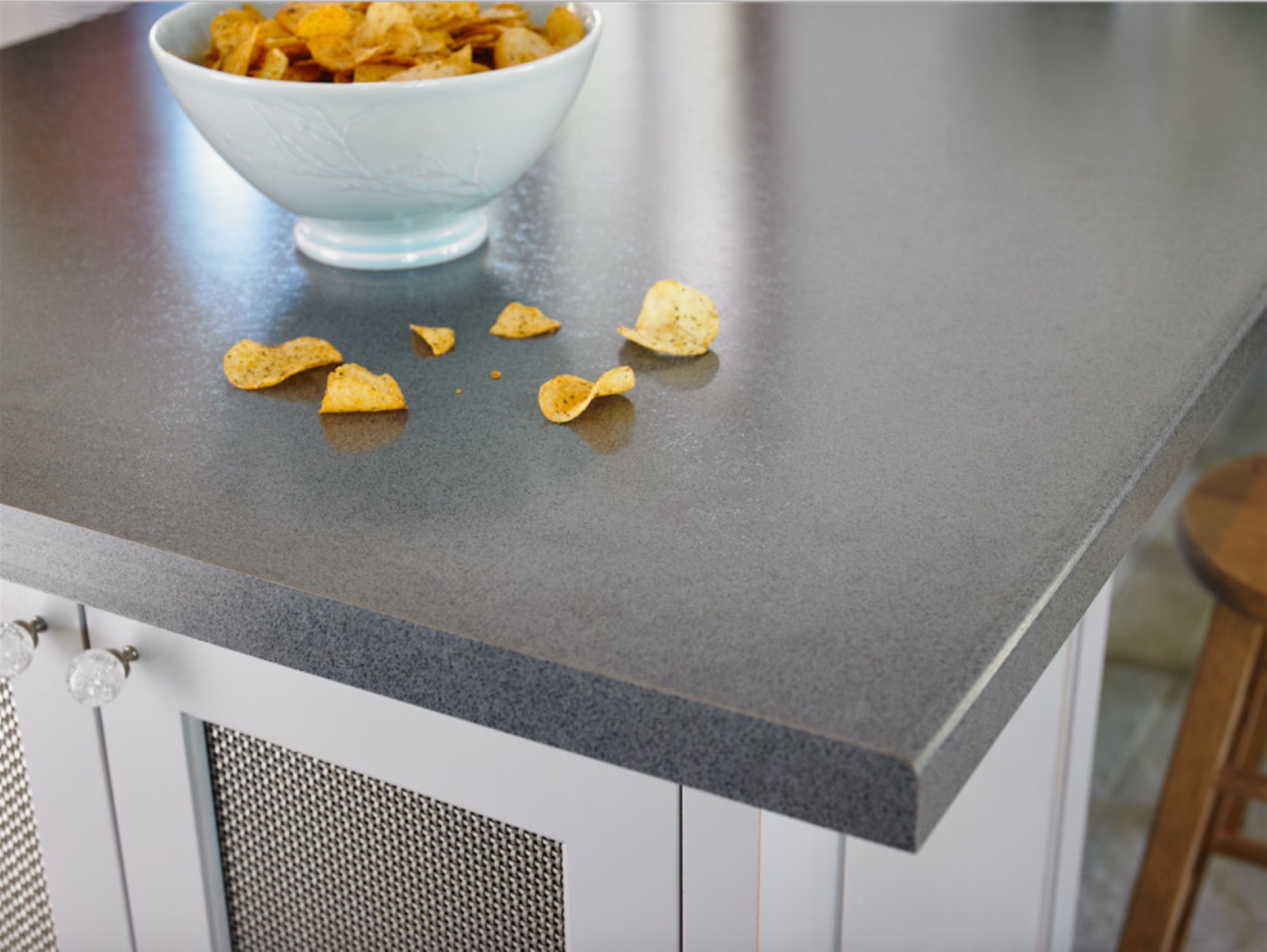

Articles
What Are Solid Surface Countertops Made Of
Modified: February 23, 2024
Discover what solid surface countertops are made of with our informative articles. Learn about the materials and benefits of solid surface countertops.
(Many of the links in this article redirect to a specific reviewed product. Your purchase of these products through affiliate links helps to generate commission for Storables.com, at no extra cost. Learn more)
Introduction
Solid surface countertops have gained popularity in recent years due to their versatility, durability, and aesthetic appeal. These countertops are a popular choice for kitchens, bathrooms, and even commercial spaces. But have you ever wondered what exactly solid surface countertops are made of?
In this article, we will delve into the world of solid surface countertops, exploring their composition, manufacturing process, advantages, and disadvantages. By gaining a deeper understanding of the materials used in these countertops, you will be better equipped to make an informed decision when selecting the right countertop for your space.
So, let’s dive right in and discover the fascinating world of solid surface countertops!
Key Takeaways:
- Solid surface countertops are composed of resins, fillers, pigments, and dyes, offering versatile design options, durability, and easy maintenance. They mimic natural stone while providing additional flexibility and hygienic surfaces.
- While solid surface countertops offer advantages such as seamless appearance and easy installation, they are vulnerable to heat, scratches, and UV exposure. Proper maintenance and care are essential to preserve their longevity and aesthetic appeal.
Read more: How To Shine Solid Surface Countertops
Definition of Solid Surface Countertops
Solid surface countertops are synthetic surfaces commonly used as countertops in residential and commercial spaces. They are made from a blend of resins, fillers, pigments, and dyes, which are combined and molded into sheets or slabs. These slabs are then fabricated into countertops of various sizes and shapes, offering a seamless and uniform appearance.
One of the key characteristics of solid surface countertops is their ability to imitate the look of natural stone, such as granite or marble, while offering more design flexibility and ease of maintenance. They are available in a wide range of colors, patterns, and finishes, allowing homeowners and designers to create custom looks that suit their specific aesthetic preferences.
Unlike natural stone countertops, which are quarried and cut into slabs, solid surface countertops are manufactured in a controlled environment, ensuring consistent quality and uniformity. This makes them an attractive option for those seeking a consistent and predictable look.
Furthermore, solid surface countertops are known for their non-porous nature, making them highly resistant to stains, bacteria, and moisture penetration. This makes them hygienic and easy to clean, an important quality for kitchen and bathroom countertops.
These countertops are also highly durable, with the ability to withstand impact, heat, and scratches. If any damage does occur, solid surface countertops can often be repaired and restored to their original condition, further enhancing their longevity and value.
With their wide range of benefits and design possibilities, solid surface countertops have become a popular choice for homeowners, interior designers, and architects alike. They offer a balance of beauty, functionality, and durability, making them a versatile and practical option for any space.
Composition of Solid Surface Countertops
Solid surface countertops are composed of a combination of resin components, filler materials, and pigments. Let’s take a closer look at each of these components and how they contribute to the overall composition of solid surface countertops.
Resin Components
The primary component of solid surface countertops is a thermosetting polymer, commonly referred to as the resin. This resin acts as a binder, holding the other materials together and providing strength and stability to the countertop.
There are different types of resins used in solid surface countertop manufacturing, with the most common being acrylic, polyester, and a blend of the two. Acrylic-based resins are known for their durability and resistance to yellowing, while polyester resins are preferred for their flexibility and lower cost.
Filler Materials
Filler materials are added to the resin to enhance the strength and stability of the countertop. These fillers, which can vary in size and composition, are typically made from minerals such as aluminum trihydrate, calcium carbonate, or silica.
Aluminum trihydrate is a common filler material used in solid surface countertops. It provides flame retardant properties and increases the resistance to heat and impact. Calcium carbonate, on the other hand, adds strength and density to the countertop. Silica, in the form of finely ground quartz, offers additional hardness and durability.
Read more: How Much Is Solid Surface Countertops
Pigments and Dyes
To add color and patterns to solid surface countertops, pigments and dyes are incorporated into the resin mixture. Pigments provide solid color and are usually added in larger quantities, while dyes are used to create translucent or variegated effects.
These colorants come in a wide range of options, allowing for endless design possibilities. From solid whites and blacks to vibrant hues and intricate patterns, solid surface countertops can be customized to match any aesthetic preference.
By combining these resin components, filler materials, and pigments, manufacturers can create sheets or slabs of solid surface material that can be cut and fabricated into countertops of various sizes and shapes. The composition and ratios of these components can be adjusted to achieve different characteristics, such as increased hardness, flexibility, or UV resistance.
With their unique composition, solid surface countertops offer a blend of durability, versatility, and aesthetic appeal. Whether you prefer a sleek and modern look or a warm and natural feel, there is a solid surface countertop option to suit your style and needs.
Resin Components
The resin components used in solid surface countertops play a crucial role in determining the durability, stability, and overall performance of the countertop. Let’s explore the different types of resins commonly used in solid surface countertop manufacturing and their characteristics.
Acrylic Resin
Acrylic resin is one of the most popular choices for solid surface countertops. It is known for its exceptional durability, resistance to staining, and ability to maintain its color and finish over time. Acrylic resins also have excellent UV resistance, ensuring that the countertop won’t fade or yellow when exposed to sunlight.
Additionally, acrylic resins provide a non-porous surface, making them highly resistant to bacteria growth and moisture absorption. This makes them an ideal choice for kitchen and bathroom countertops where hygiene is paramount.
Acrylic-based solid surface countertops are also renowned for their high heat resistance. They can withstand hot pans and pots without getting damaged or leaving any marks on the surface. However, caution should still be exercised to prevent prolonged exposure to extreme heat.
Polyester Resin
Polyester resins are another type of resin commonly used in solid surface countertops. They offer flexibility and easy workability during the fabrication process, making them ideal for creating intricate designs and custom shapes.
While polyester resins offer good heat resistance, they are more susceptible to yellowing over time when exposed to UV light. However, advancements in manufacturing techniques and the addition of UV stabilizers have minimized this issue, making polyester resin countertops more resistant to color fading and discoloration.
Polyester-based solid surface countertops are generally more cost-effective compared to acrylic-based ones. They still provide excellent performance and durability but may require more care and maintenance to maintain their appearance.
Read more: What Is A Solid Surface Bathtub?
Blended Resins
Many manufacturers also offer solid surface countertops made from a blend of acrylic and polyester resins, combining the best qualities of both materials. This blend provides the durability and non-porous nature of acrylic resins with the flexibility and workability of polyester resins.
The blended resin countertops offer a balance between affordability, durability, and ease of fabrication. They are a popular choice for those seeking the benefits of both acrylic and polyester resins.
It’s important to note that the specific composition and formulation of resins may vary between different manufacturers and brands. Some may even incorporate other additives to enhance certain characteristics, such as improved fire resistance or increased flexibility.
Before selecting a solid surface countertop, it’s recommended to inquire about the resin components used by the manufacturer and their specific properties. This will ensure that you choose a countertop that aligns with your desired performance, style, and budget.
Overall, the resin components in solid surface countertops are fundamental to their strength, durability, and aesthetic appeal. Whether you opt for acrylic, polyester, or a blend of both, these resins provide the foundation for a functional and visually stunning countertop surface.
Filler Materials
Filler materials are an essential component of solid surface countertops. They are added to the resin mixture to enhance the strength, stability, and other physical properties of the countertop. Let’s explore the different types of filler materials commonly used in solid surface countertop manufacturing.
Aluminum Trihydrate (ATH)
One of the most commonly used filler materials in solid surface countertops is aluminum trihydrate (ATH). This mineral is derived from bauxite ore and has several beneficial properties that make it ideal for countertop applications.
ATH provides excellent flame retardant properties, which means that solid surface countertops with ATH fillers are highly resistant to burning and charring. This makes them a safe option for kitchens and other areas where heat sources are present.
In addition to its flame retardant capabilities, ATH also enhances the impact resistance of solid surface countertops. It helps prevent cracks and chips that may result from heavy objects being dropped on the countertop surface.
Furthermore, ATH contributes to the heat resistance of the countertop, allowing it to withstand hot pots and pans without getting damaged or discolored. This makes it a practical choice for kitchen countertops where hot cooking utensils are frequently placed.
Calcium Carbonate
Calcium carbonate is another commonly used filler material in solid surface countertop manufacturing. It is a naturally occurring mineral that provides strength, density, and increased durability to the countertop surface.
The addition of calcium carbonate to the resin mixture ensures that the solid surface countertop is more resistant to wear and tear. It helps prevent scratches and dents, making the countertop surface more durable and long-lasting.
Calcium carbonate also contributes to the overall hardness of the countertop, making it more resistant to impacts and heavy usage. This allows the countertop to maintain its appearance and functionality even under high-traffic conditions.
Read more: What Are Countertops Made Of
Silica (Finely Ground Quartz)
Silica, in the form of finely ground quartz, is another filler material used in the manufacturing of solid surface countertops. This mineral adds additional hardness, strength, and durability to the countertop surface.
By incorporating silica into the resin mixture, solid surface countertops become more resistant to scratches and abrasions. This ensures that the countertop maintains its smooth, polished appearance even with regular use.
Moreover, silica provides increased resistance to heat, making the countertop surface less likely to be damaged by hot objects or contact with hot cookware. This is especially important for kitchen countertops, where exposure to high temperatures is common.
The specific ratio and combination of filler materials can vary between different manufacturers and even different product lines. This allows manufacturers to create solid surface countertops with different performance attributes and capabilities.
Overall, filler materials play a critical role in enhancing the strength, stability, and durability of solid surface countertops. The use of materials such as aluminum trihydrate, calcium carbonate, and silica ensures that the countertops can withstand daily use and maintain their quality and appearance for years to come.
Pigments and Dyes
Pigments and dyes are an integral part of the composition of solid surface countertops. They are responsible for adding color, patterns, and visual interest to the countertop surface. Let’s delve into the role of pigments and dyes in the manufacturing process and how they contribute to the aesthetic appeal of solid surface countertops.
Pigments
Pigments are finely ground particles that provide solid color to the solid surface countertop. These pigments come in a variety of shades and hues, allowing for a wide range of color options to suit different design preferences.
The pigments used in solid surface countertops are usually mixed into the resin mixture during the manufacturing process. This ensures that the color is evenly distributed throughout the countertop material, giving it a consistent appearance from the surface to the core.
Some manufacturers offer a selection of standard colors, while others offer the option for customization, allowing clients to choose specific shades and tones to match their desired aesthetic. This versatility in color options allows for endless possibilities in design and coordination with other elements in the space.
Pigments not only provide color but also contribute to the overall durability of the countertop. The colorants used are typically highly resistant to fading or discoloration caused by exposure to UV rays or everyday wear and tear. This ensures that the countertop maintains its vibrant color and appearance over time.
Dyes
While pigments provide solid colors, dyes are used to create translucent or variegated effects in solid surface countertops. Dyes are capable of penetrating the resin material, giving it a depth of color and subtle nuances that mimic the natural variations found in materials like granite or marble.
Dyes offer unique design possibilities, allowing for the creation of countertops with swirling patterns, veining effects, or even a subtle gradient of colors. This adds visual interest and a touch of sophistication to the countertop surface, giving it a unique and custom look.
Similar to pigments, the dyes used in solid surface countertops are formulated to be highly resistant to UV radiation and fading. This ensures that the countertop maintains its vibrant and dynamic appearance over time, even when exposed to sunlight.
Both pigments and dyes are incorporated into the resin mixture during the manufacturing process. The specific ratio and combination of pigments and dyes can be adjusted to achieve different effects and create unique patterns and colors.
The use of pigments and dyes in solid surface countertops allows homeowners and designers to truly personalize their countertops. Whether they prefer a solid, uniform color or a more intricate and eye-catching design, the flexibility offered by pigments and dyes ensures that there is a solid surface countertop option to meet their aesthetic preferences.
With their wide range of color options and design possibilities, solid surface countertops can be tailored to complement any decor style, making them a versatile and appealing choice for residential and commercial spaces alike.
Manufacturing Process of Solid Surface Countertops
The manufacturing process of solid surface countertops involves several steps to transform raw materials into the final product. Let’s explore the key stages involved in creating these versatile and durable countertops.
1. Mixing the Resin Components
The first step in the manufacturing process is the careful blending of the resin components. The resin, which may be acrylic, polyester, or a blend of both, is combined with other additives such as catalysts and stabilizers. These additives ensure that the resin cures properly and retains its desired properties.
2. Adding Filler Materials
Once the resin components are mixed, filler materials like aluminum trihydrate, calcium carbonate, or silica are added to the mixture. The precise composition and ratio of fillers are determined based on the desired characteristics of the final product, such as durability, heat resistance, or hardness.
3. Incorporating Pigments and Dyes
At this stage, pigments and dyes are introduced to the resin mixture. Pigments provide solid colors, while dyes create translucent or variegated effects. The pigments and dyes are thoroughly mixed into the resin, ensuring even distribution of color throughout the countertop material.
Read more: How To Cut Solid Surface Vanity Tops
4. Molding and Curing
Once the resin, fillers, and colorants are thoroughly mixed, the resulting mixture is poured into molds. The molds are designed to create large sheets or slabs of solid surface material. The mixture is spread evenly within the molds, and any air bubbles are removed.
The molds are then placed in a curing oven, where the mixture undergoes a chemical reaction known as polymerization. This process causes the resin to harden and the countertop material to solidify. The curing time can vary depending on the specific resin used and the desired thickness of the countertop.
5. Trimming and Fabrication
After the curing process is complete, the solid surface material is removed from the molds. Excess material and uneven edges are trimmed, and the sheets or slabs are ready for fabrication.
During the fabrication stage, the solid surface material can be cut, shaped, and joined together to create countertops of various sizes and shapes. This allows for customization and the creation of seamless surfaces without visible seams or joints.
6. Finishing Touches
Once the countertops are fabricated, they undergo a final stage of finishing touches. The surfaces are sanded and polished to achieve a smooth, sleek finish. This enhances the aesthetic appeal of the countertops and makes them more resistant to staining and wear.
Additionally, any necessary cutouts for sinks or other fixtures are made during this stage, ensuring a precise and accurate fit for the countertop installation.
After the finishing touches are complete, the solid surface countertops are inspected for quality and packaged for shipping or installation.
The manufacturing process of solid surface countertops combines advanced technology, precise formulation, and skilled craftsmanship to create versatile and durable surfaces. The attention to detail in each stage ensures that the final product meets the performance standards and aesthetic expectations of homeowners, designers, and architects.
Advantages of Solid Surface Countertops
Solid surface countertops offer a range of advantages that make them a popular choice for homeowners, designers, and architects. Let’s explore some of the key benefits of opting for solid surface countertops in your space.
Read more: What Are Lab Countertops Made Of
1. Versatile Design Options
Solid surface countertops are available in a wide range of colors, patterns, and finishes. This versatility allows for endless design possibilities, ensuring that you can find the perfect countertop to match your aesthetic preferences and complement your overall decor style. Whether you prefer a sleek and modern look or a more traditional, natural appeal, there is a solid surface countertop option to suit your taste.
2. Seamless Appearance
One of the standout features of solid surface countertops is their ability to create a seamless surface. The sheets or slabs of solid surface material can be joined together seamlessly, eliminating any visible seams or joints. This creates a sleek and uniform appearance, enhancing the visual appeal of the countertops.
3. Durability
Solid surface countertops are highly durable and built to withstand the demands of daily use. They are resistant to scratches, chips, and stains, making them suitable for high-traffic areas such as kitchens and bathrooms. The countertop material is also resistant to heat, making it safe to place hot pans and pots directly on the surface without causing damage.
4. Easy Maintenance
Maintaining solid surface countertops is relatively easy and effortless. The non-porous nature of the material makes it highly resistant to stains and bacteria growth. Regular cleaning with a mild soap and water solution is typically sufficient to keep the countertop surface looking clean and hygienic. Additionally, solid surface countertops can often be repaired or refinished if any damage does occur, further extending their lifespan.
Read more: What Are Neolith Countertops Made Of
5. Hygienic Surface
Due to their non-porous nature, solid surface countertops do not harbor bacteria or require sealing. This makes them a hygienic choice for kitchen and bathroom countertops. The smooth and seamless surface prevents the accumulation of dirt, stains, and moisture, ensuring a clean and sanitary environment in the most frequently used areas of your home.
6. Customization and Easy Installation
Solid surface countertops offer flexibility in terms of customization. They can be easily fabricated and shaped to fit any size or shape of countertop, allowing for a tailored and precise installation. The ease of installation also means less disruption during the remodeling process, making solid surface countertops a convenient choice for homeowners.
With their versatile design options, durability, ease of maintenance, and customization possibilities, solid surface countertops provide a winning combination of aesthetics and functionality. Whether you’re renovating your kitchen or designing a new bathroom, solid surface countertops offer a durable and stylish solution that will enhance the overall appeal of your space for years to come.
Disadvantages of Solid Surface Countertops
While solid surface countertops offer numerous advantages, it’s important to consider their potential drawbacks before making a final decision. Here are some disadvantages to be aware of when considering solid surface countertops for your space:
1. Vulnerability to Heat and Scratches
While solid surface countertops are generally resistant to heat, excessive exposure to high temperatures can lead to damage. Placing hot pots or pans directly on the surface can cause discoloration or even result in permanent burn marks. Similarly, while solid surface countertops are durable, they can still be scratched by sharp objects or abrasive materials. It’s important to use trivets or cutting boards and avoid dragging heavy or sharp objects across the surface to prevent scratches.
Read more: What Is Silestone Countertops Made Of
2. Potential for Staining
Although solid surface countertops are non-porous and resistant to stains, certain substances can still cause discoloration or staining if not promptly cleaned. For example, strong chemicals, dyes, or harsh cleaning agents can leave stains if left on the surface for an extended period. It’s essential to follow the manufacturer’s guidelines for cleaning and maintenance to minimize the risk of staining.
3. Limited Resistance to UV Exposure
Solid surface countertops may lose their original color or fade over time when exposed to prolonged UV radiation. This is particularly a concern for countertops near windows or in outdoor kitchens. To mitigate this, it’s advisable to use window treatments or provide adequate protection from direct sunlight.
4. Professional Installation Required
Unlike some other countertop options that can be installed as DIY projects, solid surface countertops typically require professional installation due to their precise fabrication and seamless integration. This incurs additional costs and reliance on experts for the proper installation. It’s crucial to factor in installation expenses when budgeting for solid surface countertops.
5. Vulnerability to Impact Damage
While solid surface countertops are generally durable, they are susceptible to impact damage from heavy objects being dropped or forcefully hitting the surface. This can result in chipping or cracking, which may require professional repair to restore the countertop’s original appearance.
Read more: What Is Quartz Countertops Made From
6. Cost Considerations
Compared to some other countertop materials, solid surface countertops can be pricier. The cost can vary depending on factors such as the brand, design, thickness, and installation requirements. It’s important to consider your budget and weigh the benefits against the cost before committing to solid surface countertops.
By considering these potential disadvantages, you can make an informed decision and determine if solid surface countertops are the right choice for your space. While they offer many advantages, it’s crucial to address and mitigate these limitations to ensure long-term satisfaction with your countertop selection.
Maintenance and Care for Solid Surface Countertops
Proper maintenance and care are essential to keeping your solid surface countertops looking their best and maintaining their longevity. With regular care and attention, you can ensure that your countertops remain clean, hygienic, and free from damage. Here are some essential guidelines to follow:
1. Daily Cleaning
For day-to-day cleaning, use a mild soap or pH-neutral cleaner and warm water. Avoid harsh or abrasive cleaners that can damage the surface. Gently wipe down the countertop using a soft non-abrasive cloth or sponge, then rinse thoroughly and dry with a clean cloth to prevent water spotting.
2. Removing Stains
If you notice any stains on your solid surface countertops, address them promptly. For most common stains like coffee, tea, or food, use a mixture of baking soda and water to create a paste. Apply the paste to the stain, let it sit for a few minutes, then gently scrub with a soft cloth or sponge. Rinse thoroughly and dry the area.
For more stubborn stains, such as ink or oil-based stains, consult the manufacturer’s guidelines or contact a professional for guidance on appropriate stain removal techniques.
Read more: How Are Granite Countertops Made
3. Avoid Cutting Directly on the Countertop
Avoid cutting or chopping directly on the solid surface countertop, as this can leave scratches. Always use a cutting board or mat to protect the surface from knife marks and prevent any potential damage.
4. Heat Protection
While solid surface countertops are heat-resistant, it’s still advisable to use trivets or hot pads when placing hot cookware, pots, or pans onto the surface. Prolonged exposure to high temperatures can potentially cause damage or discoloration to the material.
5. Preventing Physical Damage
Avoid dropping heavy objects or applying excessive force on the countertop surface, as this can result in chipping or cracking. Use caution when handling heavy or sharp objects to prevent any accidental damage.
6. Regular Maintenance and Inspections
Perform regular maintenance and inspections to identify any issues or areas that may require attention. Check for any signs of wear, damage, or deterioration, such as cracks, chips, or seam separations. Address any issues promptly by contacting a professional for repair or restoration.
Read more: How Are Quartz Countertops Made
7. Avoid Harsh Chemicals
Avoid using harsh chemicals, abrasive cleaners, or abrasive cleaning tools on solid surface countertops. These can damage the surface and cause scratches or discoloration. Instead, use gentle, non-abrasive cleaners specifically formulated for solid surface countertops.
8. Professional Refinishing or Repair
If your solid surface countertops become scratched, chipped, or damaged, consult a professional for refinishing or repair. They can restore the surface to its original appearance and ensure that any damage is properly addressed.
By following these maintenance and care guidelines, you can keep your solid surface countertops looking their best and extend their lifespan. Regular cleaning, prompt stain removal, and being mindful of potential damage will help preserve the beauty and functionality of your countertops for years to come.
Conclusion
Solid surface countertops offer a versatile, durable, and aesthetically pleasing option for homeowners and designers. Their composition of resins, fillers, pigments, and dyes combines to create a material that mimics the look of natural stone while providing additional design flexibility and ease of maintenance.
Throughout this article, we explored the components of solid surface countertops, including the resin components that provide strength and stability, the filler materials that enhance durability, and the pigments and dyes that add color and visual interest. We also learned about the manufacturing process, advantages, and maintenance considerations of these countertops.
The advantages of solid surface countertops are apparent. They offer versatile design options, including a seamless appearance and the ability to imitate natural stone. They are durable, easy to clean, and provide a hygienic surface for kitchens and bathrooms. Additionally, their customizable features and ease of installation make them a practical choice for any space.
However, it is important to consider the disadvantages, such as vulnerability to heat and scratches, the potential for staining, and the requirement of professional installation.
To maintain and care for solid surface countertops, a regular cleaning routine, prompt stain removal, and precautions against heat and physical damage are essential. Following these guidelines will help preserve the appearance and performance of the countertops over time.
In conclusion, solid surface countertops are an excellent choice for homeowners and designers seeking a durable, customizable, and easy-to-maintain option for their kitchens, bathrooms, or commercial spaces. With their versatile design options, durability, and hygienic properties, solid surface countertops provide a reliable and visually appealing surface that can elevate the overall aesthetics of any space.
As you consider your countertop options, weighing the advantages and disadvantages along with your personal style and requirements will enable you to make an informed decision. Consult with professionals, explore different brands and designs, and select the solid surface countertop that best suits your needs, budget, and vision for your space.
Frequently Asked Questions about What Are Solid Surface Countertops Made Of
Was this page helpful?
At Storables.com, we guarantee accurate and reliable information. Our content, validated by Expert Board Contributors, is crafted following stringent Editorial Policies. We're committed to providing you with well-researched, expert-backed insights for all your informational needs.
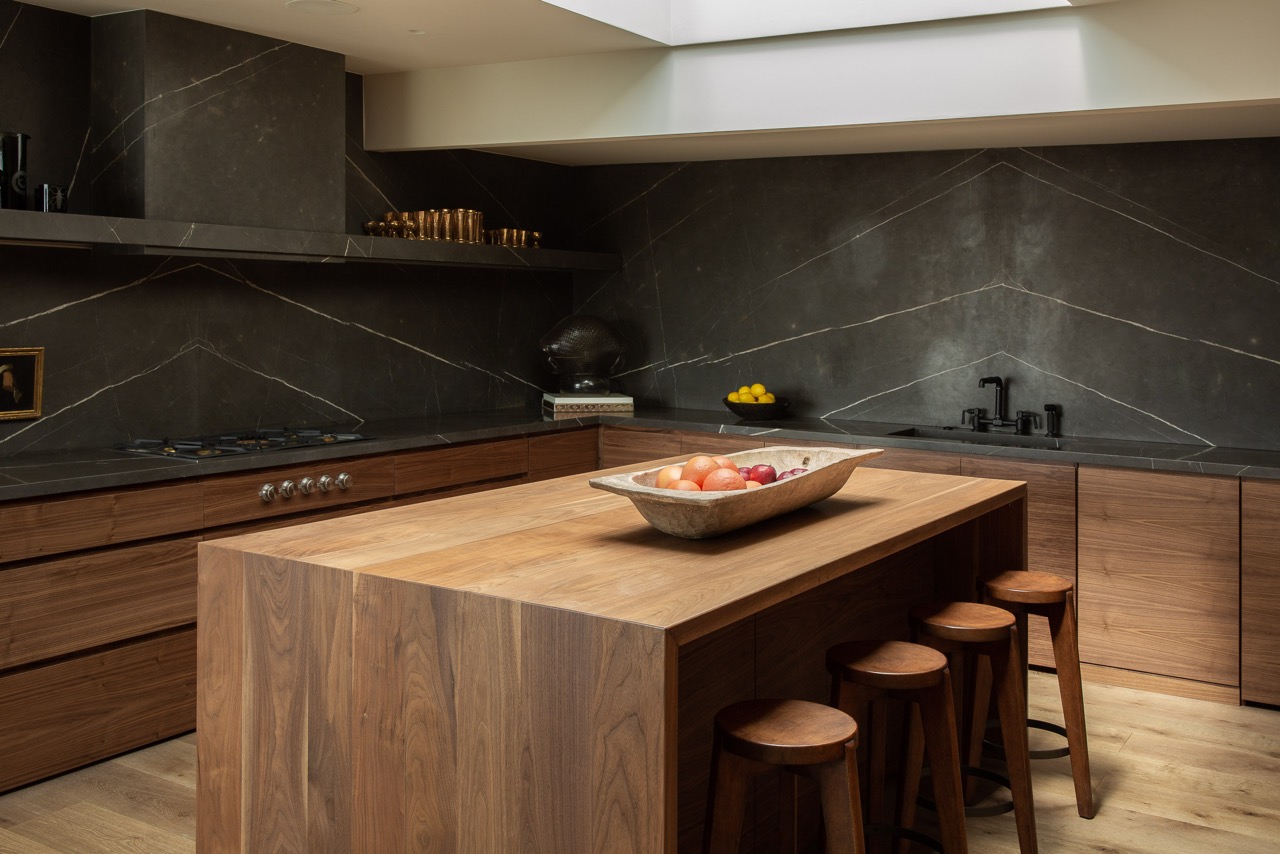
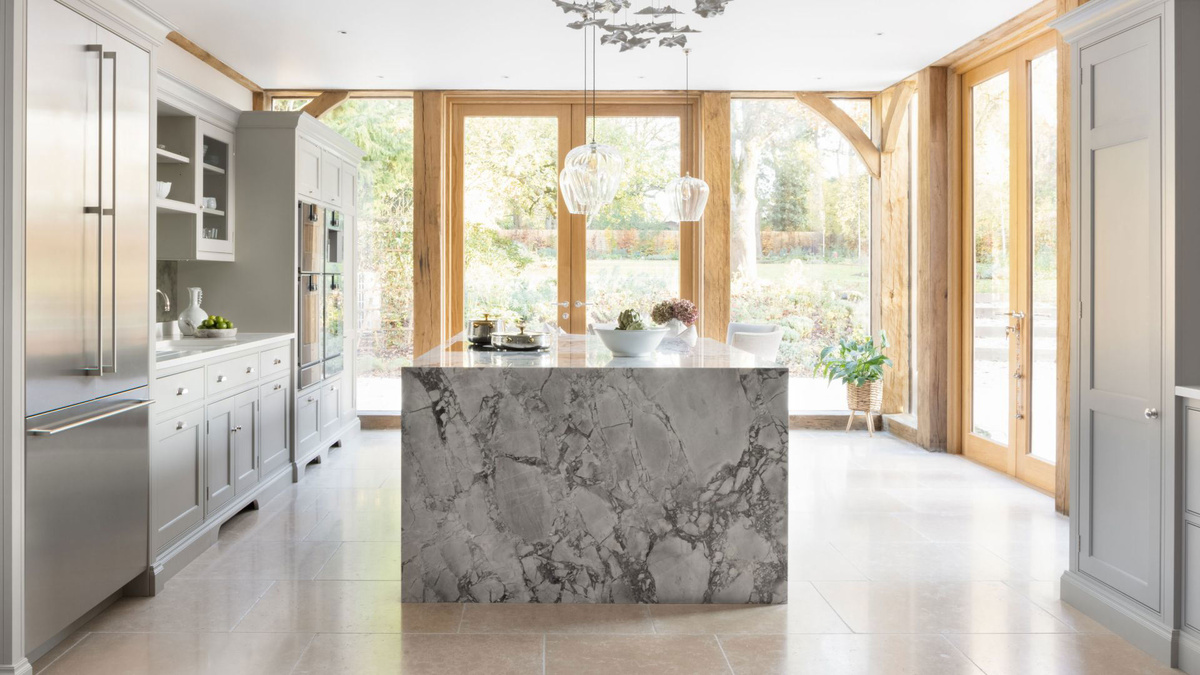
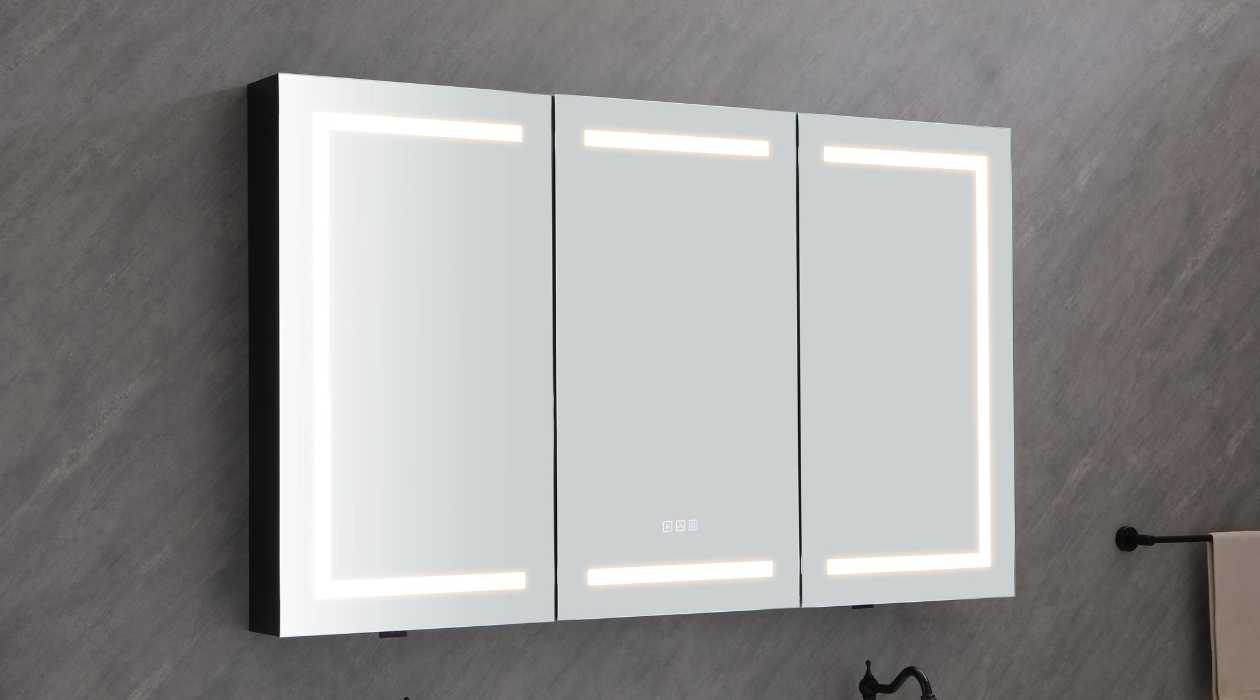
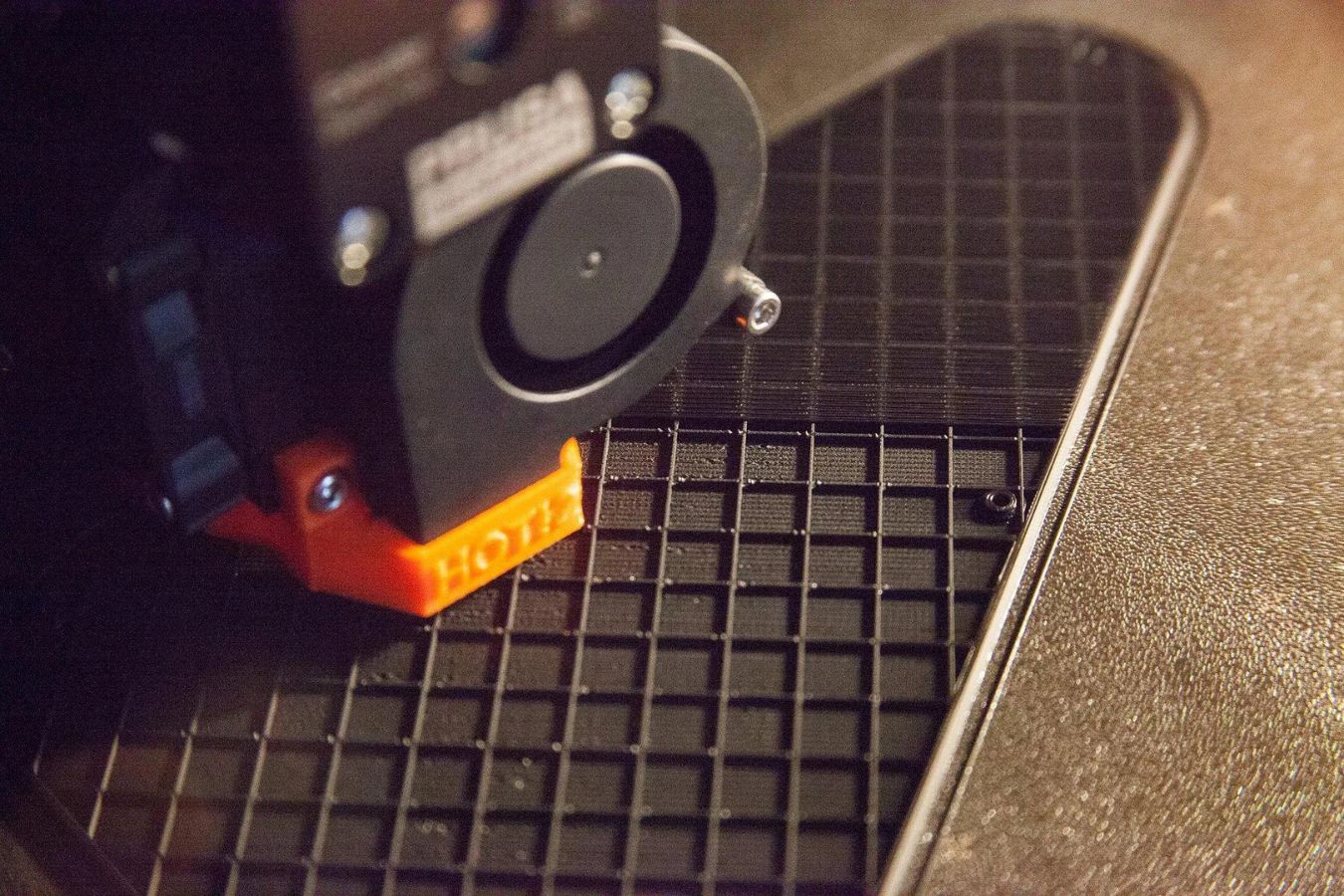

0 thoughts on “What Are Solid Surface Countertops Made Of”